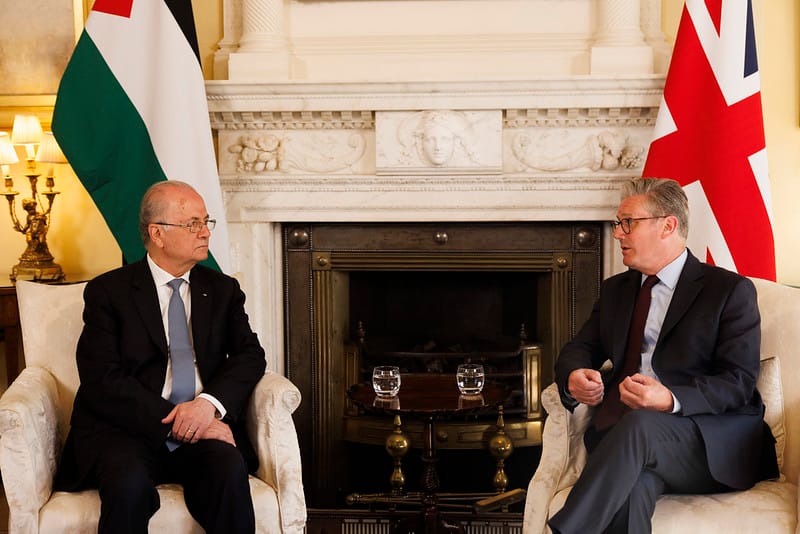Ashrams for war criminals
In a rebuke of its anti-colonial past, India’s pursuit of Israel normalisation knows no bounds

Chabad Houses, Israeli flags and Hebrew advertisements – such are my memories of visiting family in India. As a Bengali Jew who grew up in Jerusalem, amongst the region’s militarised checkpoints, partition walls, occupation forces and refugee camps, these images were all too familiar. In India, however, a country supposedly free from colonial rule, Israel’s presence felt out of place.
When I returned to South Asia last summer, I was struck by how Israel’s influence had festered. Alongside the ubiquitous Israeli flag, hostels, cafés, restaurants and bars were now adorned with stickers promoting Israel’s occupation forces in Gaza. As their regime enacted genocide, Israelis fresh out of foot-soldiering this brutal offensive had clearly been enjoying a holiday.
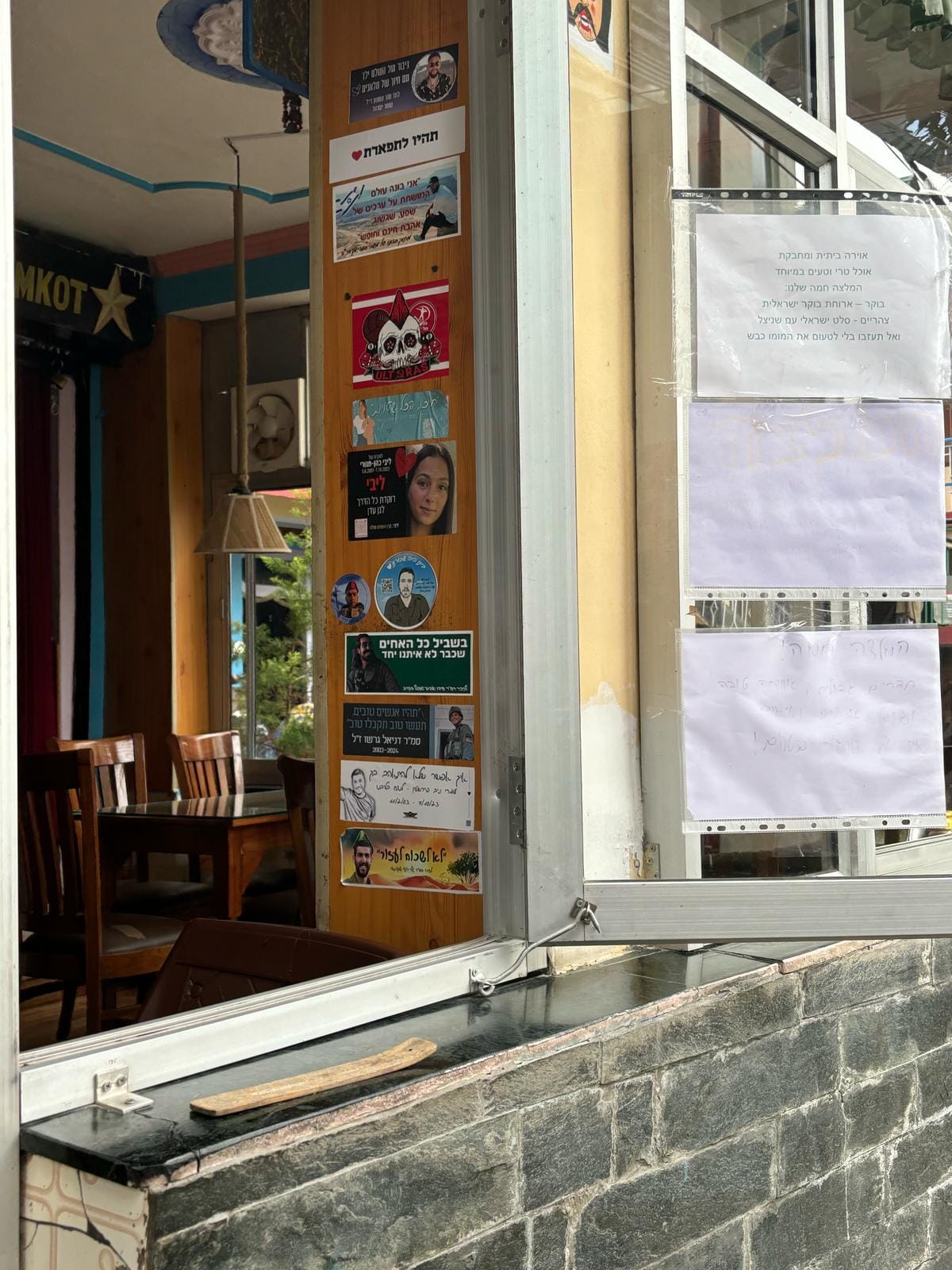
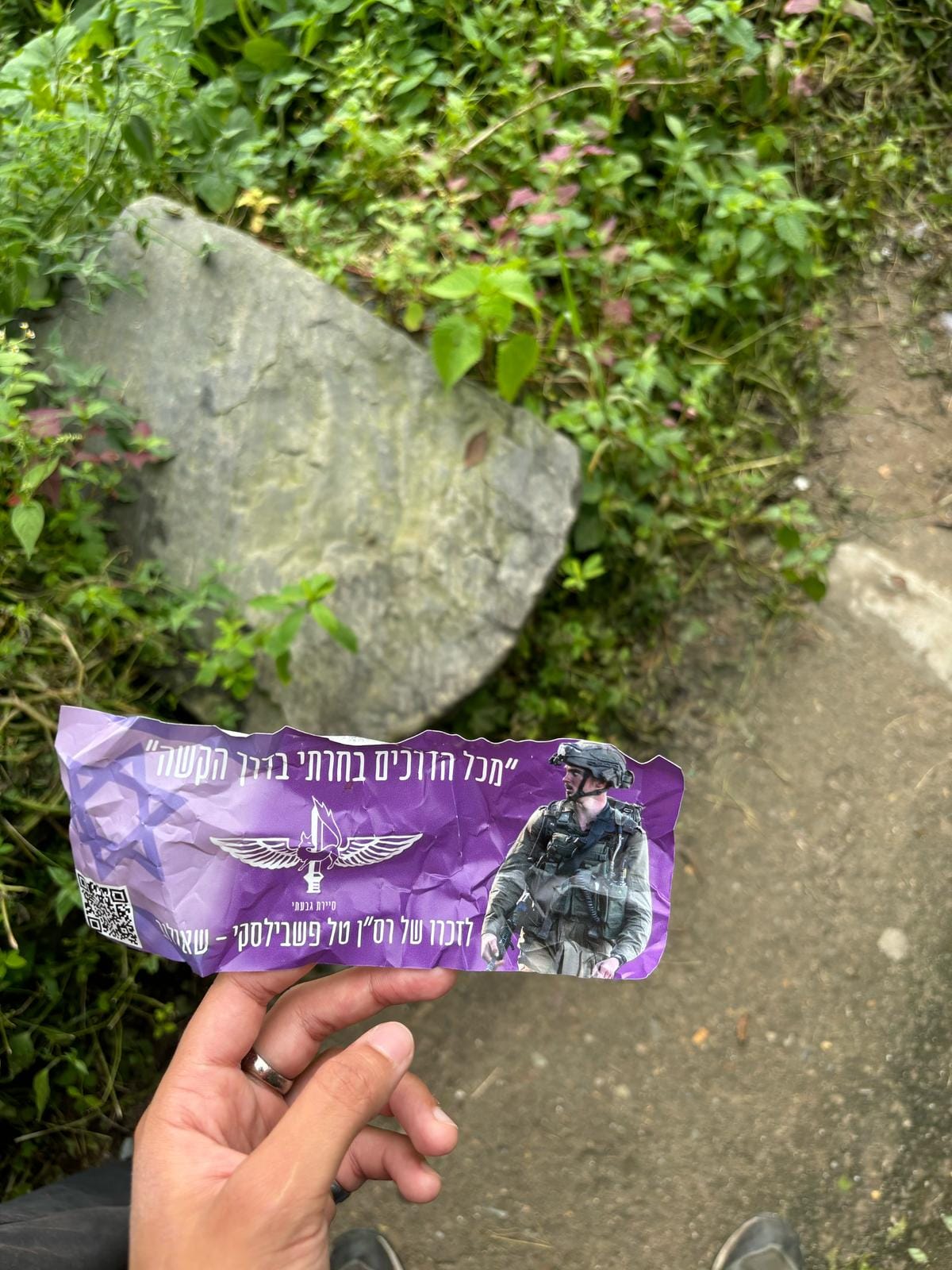
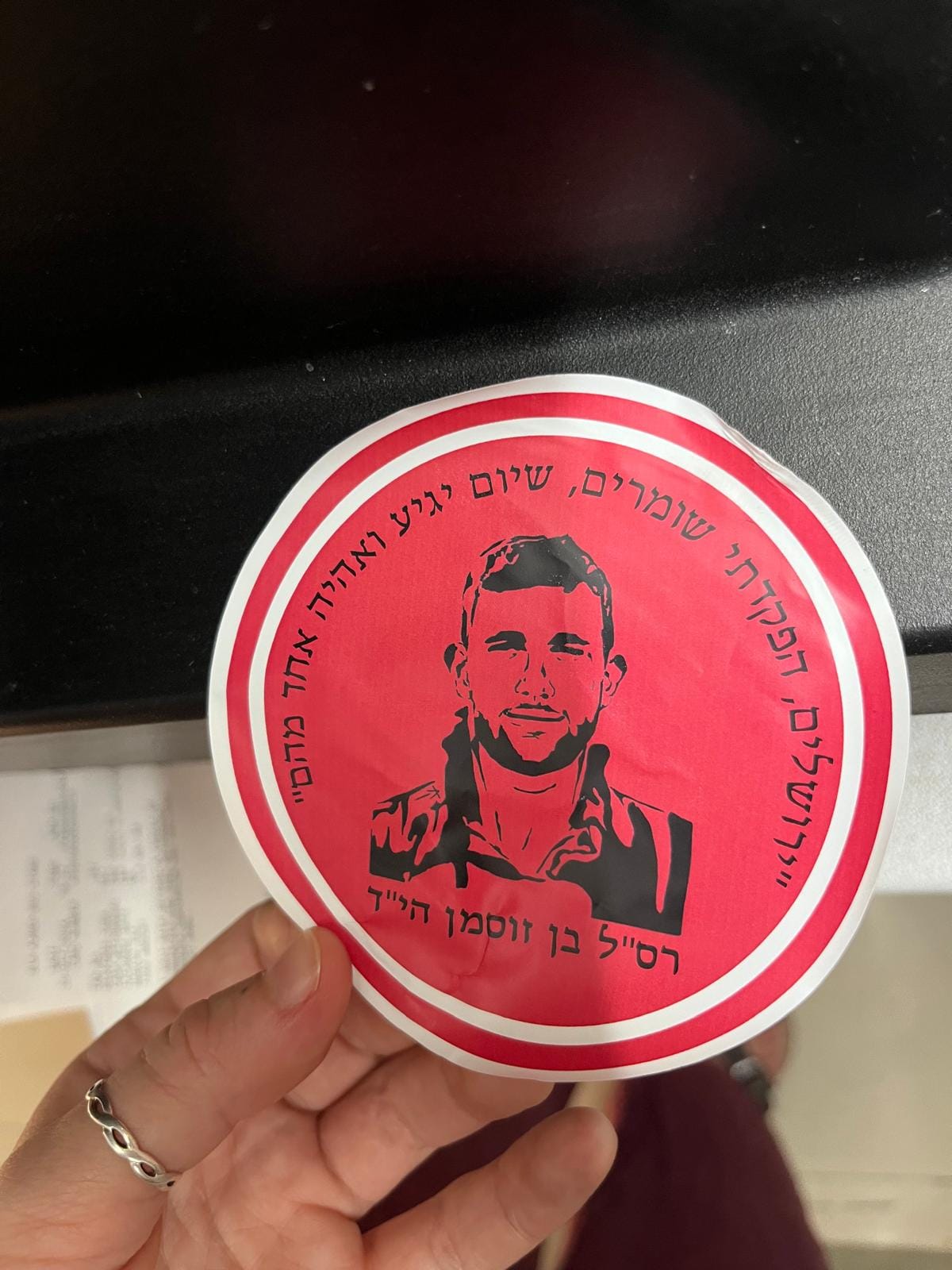
Some 80,000 Israeli tourists visit India every year, flocking to hubs along a route known as the "Hummus Trail", where once archetypal Indian towns have been customised to accommodate this market of travellers. Goa’s beaches welcome Israeli hippies with trance raves and drug fests. Dharamsala has an Israeli enclave colloquially known as "mini Israel", filled with "Israeli" falafel stands and coffee shops. In Pushkar’s bustling marketplace, shopkeepers speak Hebrew and local dhabas serve "Israeli food". Along the Varanasi ghats, a restaurant waiter told me that he changed the tomato and cucumber salad on his menu to "Israeli salad" after being "corrected" by Israeli customers. In Kasol, one can even find a "white-only" Israeli restaurant. The encroaching Israeli permanence amidst long-established localities is eerily reminiscent of West Bank settlements.
Presently, a growing number of these tourists may be at risk of arrest while travelling abroad because of their involvement in the Gaza genocide. The Hind Rajab Foundation (HRF), named after six-year-old Hind Rajab who, along with her family, was killed by Israel while in a car fleeing Gaza City last January, is at the forefront of efforts to prosecute perpetrators travelling abroad. The organisation monitors the social media accounts of Israeli soldiers, tracks their boastful posts online, and submits their names, along with evidence of their criminal activity, to international and domestic judicial authorities.
The HRF and other legal advocates have pursued charges across the world (including once popular Israeli tourist destinations in the Global South, like Brazil, Thailand and Sri Lanka); but, so far, these efforts appear to have passed India by.
Detox from genocide
Along with Sri Lanka and Nepal, East Asia and South America, India has long been a primary destination for Israelis to fulfil a post-army rite of passage: the detox trip abroad. Upon completion of their mandatory two to three years of military service, the Israeli government grants soldiers a discharge bonus, which functions rather like a corporate wellness package. Former soldiers often use these bonuses to subsidise international travel and "blow some steam off" after committing occupation, apartheid and now, genocide.
The Indian detox programme offers Israelis a cheap indulgence in spirituality, with retreats to ganja-riddled Hindu ashrams and yoga getaways to hilltop Buddhist monasteries. Israeli backpackers can also participate in organised volunteer projects – BINA, for instance, is an Israeli organisation offering to help travellers "get as far away as possible from army experience". Others turn to psychedelics.
Locs-laden and drugged-up, former Israeli soldiers parade around the Global South claiming land and local culture as their own – a settler instinct perhaps conditioned by their daily function in an expansionist regime. Given Israel’s ongoing campaign of extermination against Palestinians across Gaza, the West Bank, and, indeed, all of historic Palestine, the relationship between these colonial tourist treks and Zionism’s imperialist project is direct and urgent. As Gazan journalist Bisan Abu Owda noted in an Instagram comment: "Indians take care, first it starts with restaurants and towns then it ends up not your land somehow…".
These colonial dynamics are apparent in interactions between Israeli tourists and the local community. Cahir, a 21-year-old university student who runs a hotel near Delhi’s Beit Chabad, told me, "[Israelis] are afraid of the locals, they stay in their own ‘packs’ and don’t mix." On a stop-over through Pushkar, I spoke with an Israeli tourist named Shani who unashamedly recounted her visit to a Gurudwara, describing Sikhs as "freaky" with "weird turbans and scary beards", "like Muslims."
Her Islamophobia, rooted in anti-Palestinian racism, carries resonance in a society structured by Hindu supremacy over the local Muslim population. In the last decade, Prime Minister Narendra Modi and his Bharatiya Janata Party (BJP) have seen to India’s surge in anti-Muslim hatred, fuelling fascism for political and geopolitical gain.
Birds of a feather
Far from shunning Israel, as have other countries across the Global South, India has found legal loopholes to bolster a climate of impunity for Israeli war criminals, effectively normalising relations with the Zionist regime.
India’s hands-off approach to Israel could date back to the age of "non-alignment" during the Cold War, when together with 28 countries in the Global South, it sidestepped "East-West ideological confrontation" to focus on its own "national independence struggles" and "economic development". Now, India’s not being party to the Rome Statute, the treaty that established the International Criminal Court (ICC), seems prescient. Conveniently for India’s apparent desire not to interfere with other nations’ domestic or wider international issues, within India’s borders, the ICC arrest warrants for Benjamin Netanyahu and Yoav Gallant are by-the-by.
India has continued to undermine the ICC by adopting an ambivalent position on the principle of "universal jurisdiction" which allows any country to prosecute individuals for crimes against international law (regardless of the crime’s location and the nationality of its perpetrator or victim). India circumvents these potential legal obligations by simply interpreting the principle as "a state's authority to prosecute its [own] nationals, regardless of their location," as such avoiding the responsibility of prosecuting foreign nationals within its borders. Furthermore, India solidifies its bypass of international law by arguing that crimes covered by treaties fall under "treaty-based jurisdiction rather than customary law applicable to all states."
Indeed, joining international efforts to prosecute Israeli war criminals would largely contradict India’s own economic and ideological national interests. Since coming to power in 2014, Modi and the BJP have deepened relations with Israel to bolster their Hindutva-driven populist agenda.
While Jawaharlal Nehru struggled to keep India secular after independence, other nationalist leaders like Vinayak Savarkar, Hindutva’s founding father, took a radically different path. His ethnonationalist ideology pushed for the establishment of a Hindu Rashtra (nation), based on a racialised Hindu identity, much like the Zionist vision for an ethnically Jewish state. As early as the 1920s, Savarkar declared his affinity with the Zionist project: "If the Zionists’ dreams are ever realised – if Palestine becomes a Jewish state – it will gladden us almost as much as our Jewish friends." Writing at the dawn of Israel’s establishment in 1948, his kinship with Zionism becomes clearer as he describes both political projects in similar terms. Both the Jewish State and Hindu India espoused the idea of "Fatherland" and "Holyland". For both, Muslims were their "unholy" counterparts.
Fast forward 70 years and Modi’s India has intensified Hindutva’s Islamophobic manifestations. The country’s rising anti-Muslim hatred sees its easiest parallel in Israel, making the choice of many Israeli soldiers to seek refuge in India amidst growing international calls for their arrest perhaps all the more likely.
Such parallels don’t stop in founding ideology or Islamophobic public spheres. India also seems to follow Israel’s example in legalising violence against its target minority, spearheaded by the security state. India’s 2024 Citizenship Amendment Act (CAA), which seeks to expedite citizenship for all religious minorities from neighbouring countries – except, of course, Muslims – appears to owe much to Israel’s 2018 "Jewish State Law". The BJP’s campaign to replace mosques with temples, notably the Ram Mandir (temple) atop the ruins of the mob-destroyed Babri Masjid (mosque) in Ayodhya, mirrors the efforts of militant Jewish extremists (unstopped, if not supported, by the government) to destroy the Al Aqsa compound and rebuild a Jewish temple.
In the realm of military force, India’s transformation of the Jammu and Kashmir region into a police state marked by unlawful killings, abductions and other atrocities, resembles Israel’s approach to securitising and terrorising Palestinians in Gaza and the West Bank.
Both India and Israel have formalised their support for each other’s brutal occupations. India spends nearly $3bn annually on Israeli missiles and surveillance equipment – technology that has reportedly been "tried and tested" on Palestinians – making it Israel’s top military client. In return, India sells Israel the Hermes combat drones it lethally uses against Palestinians in Gaza. These exchanges of weaponry and military technology are the material manifestations of a new alliance between India and Israel, each fascist regime helping the other in terrorising their respective majority-Muslim occupied populations.
Returning to anti-colonial solidarity
While relations with Israel clearly serve the BJP’s own political interests, to the average Indian they represent good business.
Nishan, a shopkeeper in Dharamsala who had plastered his falafel store with pro-Israel stickers explained: "If that’s what’s going to allow me to feed my family at the end of the day, that’s what I’m going to have to do." He urged: "I am not happy with Israelis, but I’m getting their money… if they stop coming, we get hit hard." Continuing, Nishan clarified: "And it’s not just Palestine, in Goa they’re sad because Russian tourists have stopped coming since the war with Ukraine."
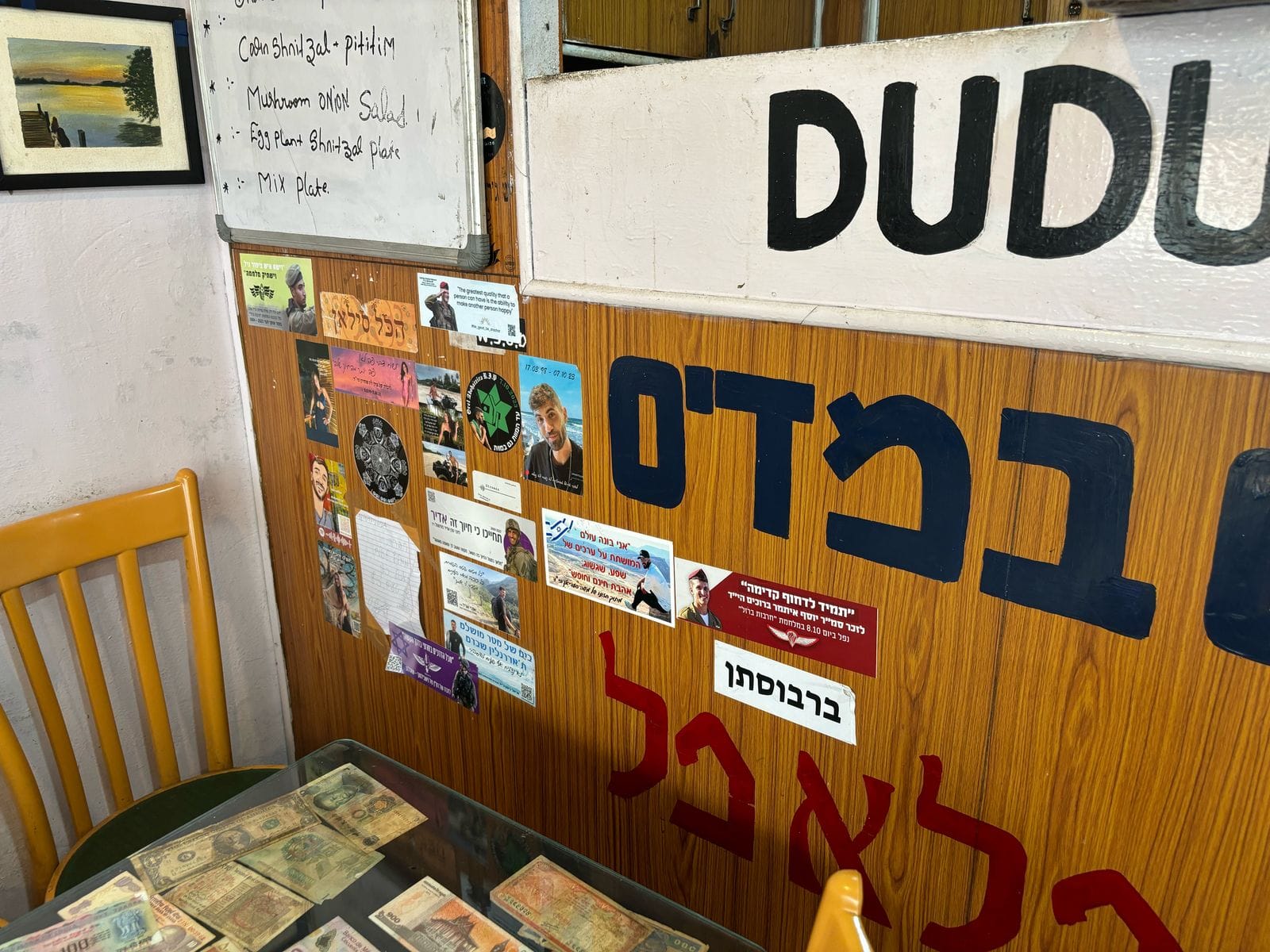
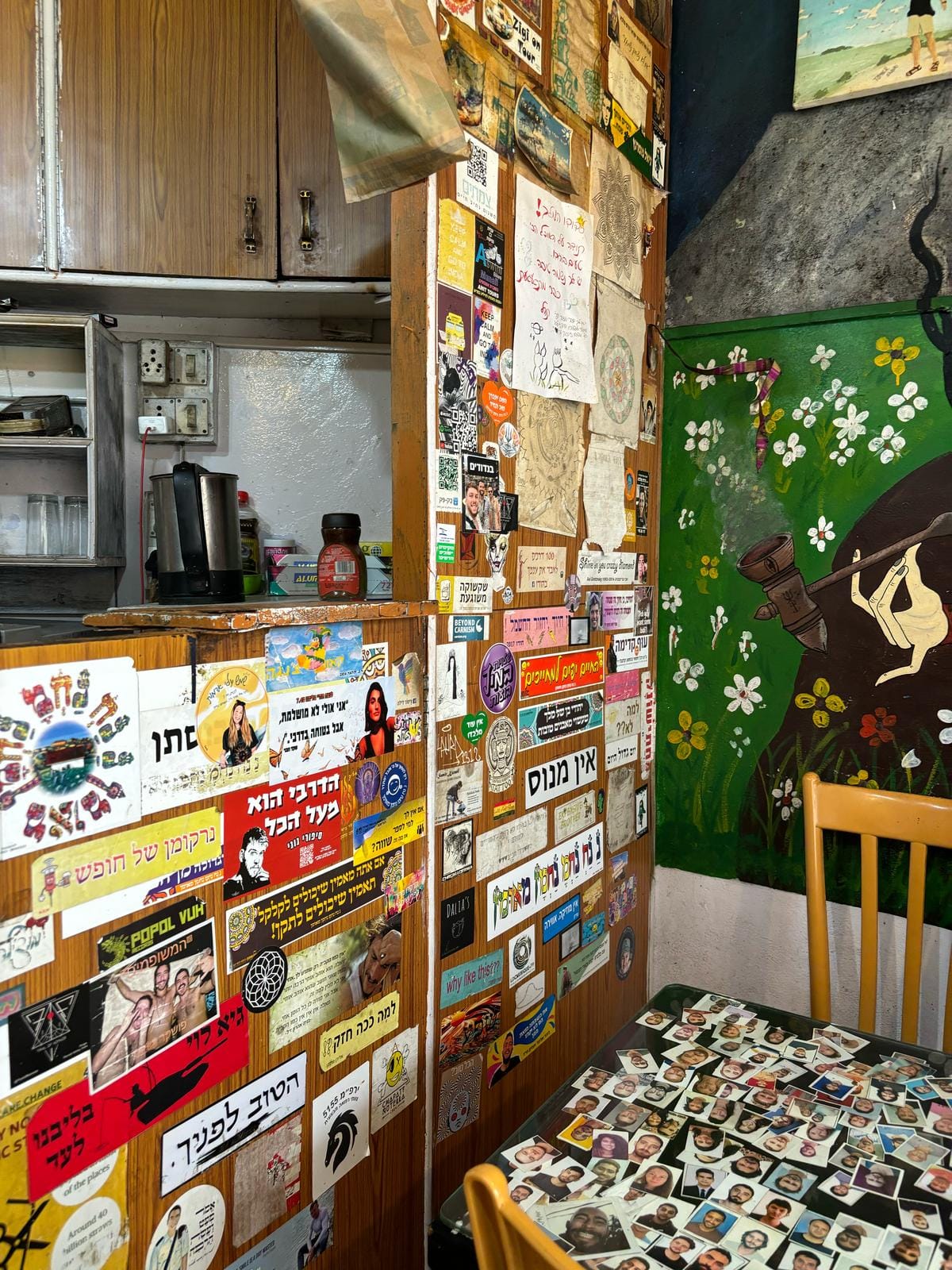
Nishan revealed his fear of financial consequences also deterred him from protest: "If I go out and protest, I’ll lose a day’s work." Though, from exchanges with family and other residents of villages along the Trail, I gathered a broader sense of apathy when it came to supporting Palestine. Tarun, my Rajasthani taxi driver, wasn’t even aware of Israel’s recent violence in Gaza, explaining: "I have very little time to watch the news."
In other conversations, however, I found criticism of Israel to be expressed much more openly. "I’m pro-Palestine", Cahir says without hesitation: "my coworkers tell me not to talk politics because I work in hospitality, but I still questioned this Israeli guest on how she could travel for leisure while there was a war going on." Despite the negative review she left his business following their interaction, Cahir wasn’t dissuaded: "I’m a human being first, and if there’s a humanitarian crisis going on, I will always speak out."
Cahir’s solidarity with Palestine is not an isolated phenomenon but is instead shared by local communities across the country. On several occasions along the "Hummus Trail", I came across Indians wearing Palestinian Keffiyehs. Whilst browsing the shelves of the Harmony Bookshop in the backstreets of Varanasi’s Assi Ghat, I noticed a prominent display of educational literature on Palestine and Kashmir at the counter. I ate at a restaurant in the holy Sikh city of Amritsar which displayed the oft named "Israeli Salad" as an "Arabic Salad" on its menu. Between the contested regions of Ladakh and Chinese-occupied Tibet, Ladakhi locals encouraged me to raise a Palestinian flag, which now flutters amidst the rows of Buddhist prayer flags on the shores of the Pangong Lake.
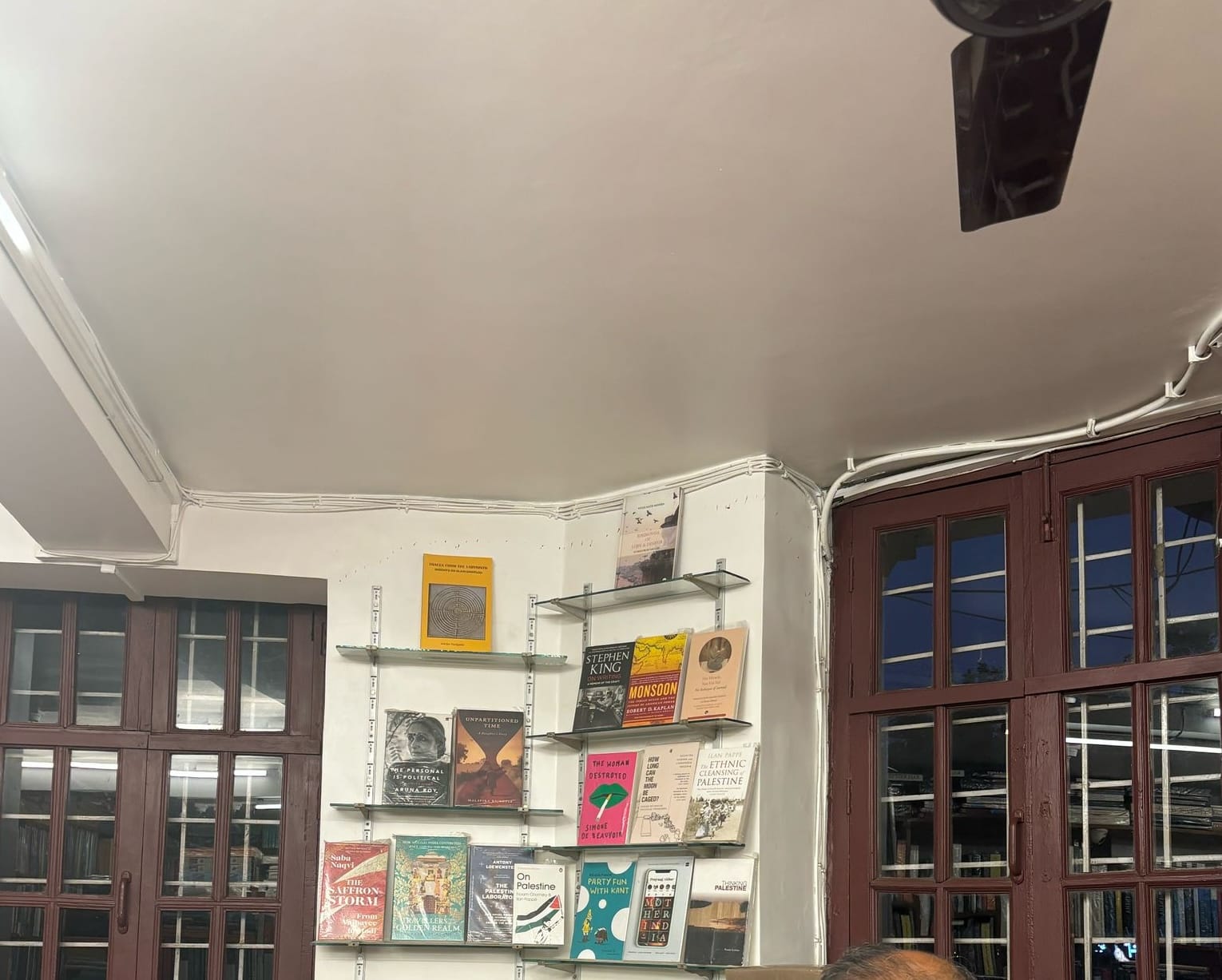
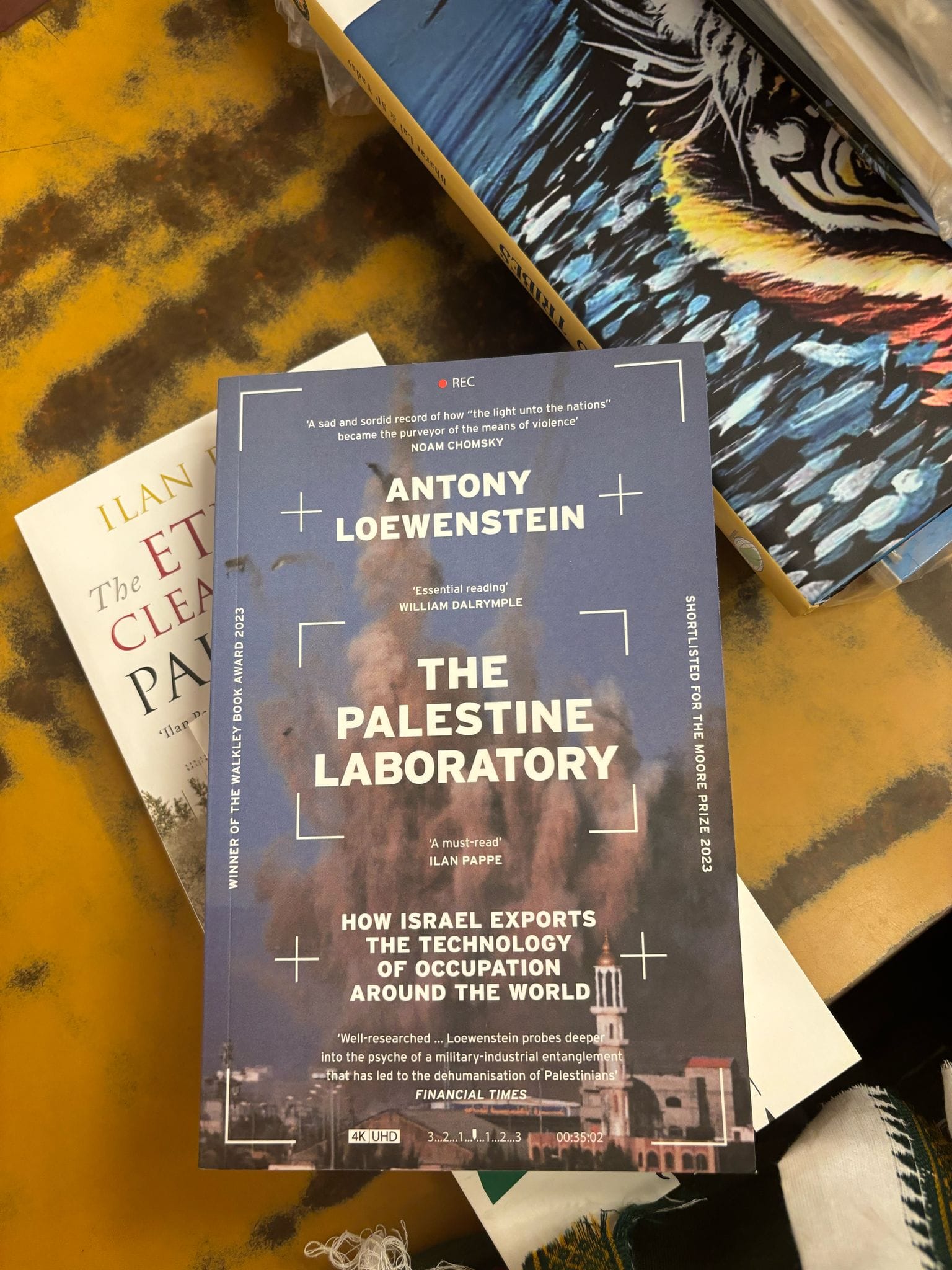
Despite consistent government repression, protest has further erupted into the streets. Students have taken demonstrations to Delhi’s Israeli embassy, port workers’ unions have refused to load weapons bound for Israel, and Keralites – known for their strong support of Palestine – were seen parading images of Hamas leaders Yahya Sinwar and Ismail Haniyeh, and Hezbollah’s Hassan Nasrallah, at a local festival procession earlier this year. The same festival exhibited images of Yasser Arafat and Che Guevara in previous years, reflecting a powerful support for a lineage of liberatory action at all costs.
Solidarity with Palestine runs deep through India's founding fabric. When asked to express support for the Zionist cause in 1938, Mahatma Gandhi urged: "it is wrong and inhuman to impose the Jews on the Arabs", warning then that to displace the extant population of Palestinians to engineer a Jewish state would represent a "crime against humanity". Later, Nehru opposed UN Resolution 181 (which mandated the partition of Palestine in 1947), declaring it an extension of British imperialism. In 1975 India supported a UN resolution condemning Zionism as "a racist and imperialist ideology". In 1988 India became one of the first nations to recognise Palestine as a sovereign state.
Once at the cutting edge of a revolutionary movement, India has capitulated itself in striving to become a regional economic power-house. Instead of submitting to the Zionist Raj, the country must reclaim its historic anti-imperial course, stand with its people and hold Israel accountable. ▼
Sara Radha Pelham is a London-based journalist.
Author
Sara Radha Pelham is a London-based journalist.
Sign up for The Pickle and New, From Vashti.
Stay up to date with Vashti.



